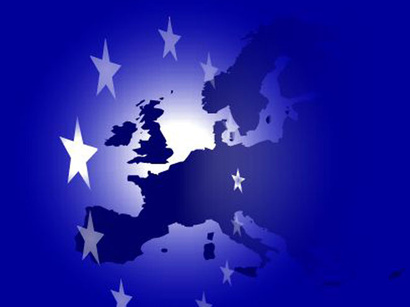EU bid to limit card fees poised to win backing from nations

By Bloomberg
European Union nations are set to throw their weight behind plans to cap the fees banks can collect on Visa Europe Ltd. and MasterCard Inc. transactions, as the bloc seeks to reduce charges imposed on retailers.
Governments are poised to reach an agreement on a system of limits for so-called interchange fees on debit and credit-card payments, along with other conduct rules for card providers, according to an EU document obtained by Bloomberg News. While American Express Co., the biggest credit-card issuer by purchases, would escape the full force of the measures, it would have to comply with the fee caps when it works with other companies to issue cards.
Interchange fees are "one of the key practices hindering the functioning of the internal market in card-based payments," according to the document prepared by Italy, which holds the rotating presidency of the EU, and so chairs meetings of national officials working on draft European laws.
EU antitrust regulators have targeted the fees, a type of payment made between retailers' and consumers' banks as part of debit- or credit-card transactions, for more than a decade. The European Commission has argued that the way interchange charges are collectively agreed on is anti-competitive.
Visa Europe, operator of the EU's largest payment-card network, pledged earlier this year to reduce interchange fees on credit-card transactions to end an antitrust investigation. Purchase, New York-based MasterCard in September lost a court challenge against some curbs imposed by EU competition regulators.
Payment Providers
Alongside the antitrust measures, the Brussels-based commission, the 28 nation EU's executive arm, published a draft regulation in July to curb the fees in a more comprehensive way. The draft plans focus on cards issued to consumers, rather than "commercial" cards.
While retailers have long called for the fees to be scrapped, payments providers have warned that the move would backfire and drive up costs for consumers.
EU nations may agree on their position on the draft regulation as soon as a meeting of national ambassadors on Nov. 5, according to three people familiar with the dossier. Should a deal not be possible then, finance ministers may seek to broker one at a meeting in Brussels on Nov. 7.
The Council of the European Union, the EU institution that brings together national government representatives, and the European Parliament must agree on the final version of the rules for them to take effect. The Parliament adopted a negotiating position on the text in April that was also broadly supportive of the commission's plans.
Interchange Fees
The text prepared by Italy, and circulated to national government officials ahead of the Nov. 5 meeting, would retain the commission's proposal for interchange fees on cross-border debit-card payments to be capped at 0.2 percent of the value of the transaction, and for fees on credit-card transactions to be limited to 0.3 percent.
For domestic debit-card payments, the text deviates from the commission plans by giving nations the option of calculating the 0.2 percent cap against the value of individual transactions, or against the "annual average transaction value."
The EU proposals, like the antitrust probes, target so- called "four-party schemes," such as Visa and Mastercard, where payments are handled by the banks used by the retailer and the customer. This is different to "three-party schemes," such as American Express, where the card provider, rather than banks, stands in the middle of a transaction.
Licensing Agreements
In the commission's proposals, American Express, and other three-party systems, would only be affected when they have licensing agreements with other providers -- a model that accounts for about 9 percent of American Express's business, according to EU data.
In the Italian text, this would be expanded also to cases where three-party systems, issue "payment cards with a co- branding partner or through an agent."
"EU member states should focus on ensuring that all players in the payments market are treated equally," Jason Lane, group executive for European business development at MasterCard Europe, said in an e-mail. "I understand that the Council is currently building on the positive work of the European Parliament in this area."
Still, MasterCard remains concerned that "some forms of implicit interchange operated by three-party schemes are not fully captured by the proposed legislation," Lane said. "This new legislation will not make sense if it creates a competitive advantage for the most expensive players on the market."
'Makes Sense'
American Express said it "makes sense" for its proprietary business to be exempt from the proposed rules. The EU law should "only target those companies that have fallen foul of Europe's competition laws, rather than be applied indiscriminately to an entire sector," the company said in an e-mailed statement.
Visa Europe is encouraging nations to ensure that the proposed regulation doesn't have "unintended consequences, particularly for consumers," Marc Temmerman, director of European affairs, said in an e-mailed statement.
A spokesman for Italy's EU presidency didn't have an immediate comment.
